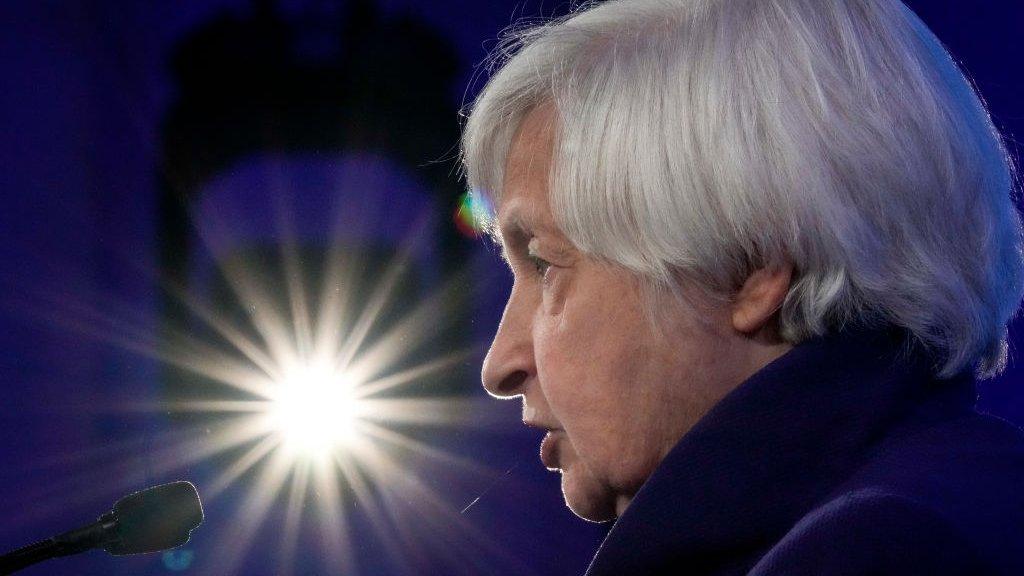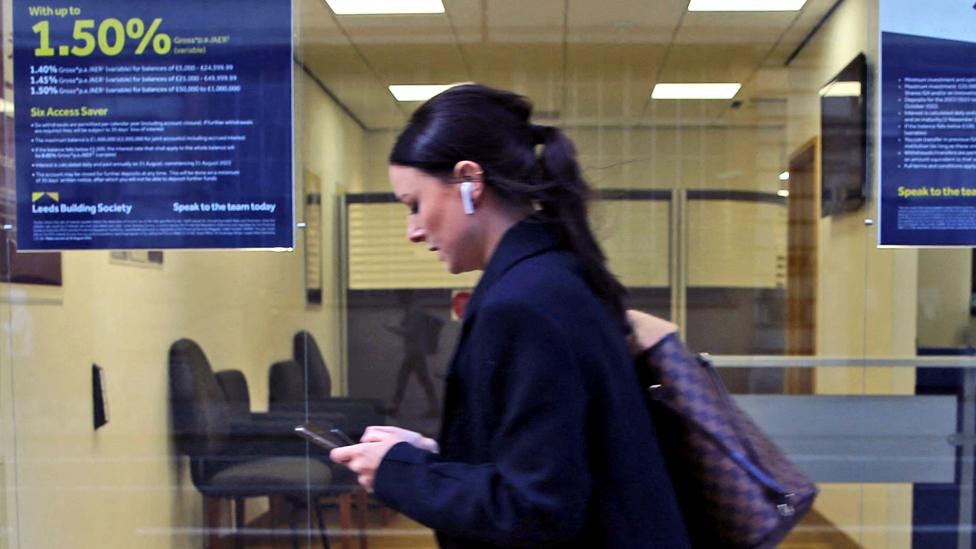Faisal Islam: Veiled concern about Trussonomics at IMF
- Published

British economic policy faced some thinly-veiled criticism by other G7 finance ministers at the crucial meeting of major economies at the IMF yesterday, the BBC understands.
While the UK was not identified by name, multiple participants at the round table, the debut of UK Chancellor Kwasi Kwarteng, raised their concerns about countries making unfunded tax cuts that threatened financial stability, at a delicate time, a clear reference to Britain.
One G7 minister said privately that the concern was really about how the UK had "doubled down" even after the clear financial stability implication, and that explanations would be sought.
The US Treasury Secretary Janet Yellen had already said publicly on the sidelines of the IMF conference that she was "watching UK developments closely".
While she didn't want to comment on UK policy, she said: "I am going to try to understand what the impact of those policies and their rationale is."
Secretary Yellen, a former Federal Reserve Chair told CNBC when asked if UK fiscal credibility problems were making global markets more volatile said "at a time when monetary policy is tightening, fiscal policy should have a stance that complements that that central banks play the lead, but fiscal policy should be complementary. We've tried to do that in the United States."
The President of the Eurogroup, which represents the Eurozone, the Irish Finance minister Paschal Donohoe, told the BBC: "The United Kingdom is a G7 economy with their own currency.
"And it's absolutely obvious in all of the public statements that have been made by the Bank of England and by the government of the United Kingdom, that they're aware of developments that are taking place and have every confidence in their ability to be able to manage these kinds of developments."
But he stressed that Ireland had taken a "different approach" by deciding "not to borrow" to fund energy crisis help, because he wanted to make sure it was affordable and "the need to ensure financial market confidence".
The former Bank of England Governor Mark Carney, when asked about the message being sent by markets to the UK, said, "whether it's in monetary policy or fiscal policy, or climate policy, credibility comes from commitment, clear commitment, it comes from transparency, and it's buttressed by institutions".
Mr Carney said he had "full confidence in the Bank of England" to get inflation back down and to safeguard the financial system and "as a consequence of both of those, markets will settle and they will price risk accordingly. And I'm sure the government is aware of that and working to ensure that it has the right budget policy".
- Published13 October 2022

- Published12 October 2022

- Published12 October 2022

- Published12 October 2022

- Published12 October 2022

